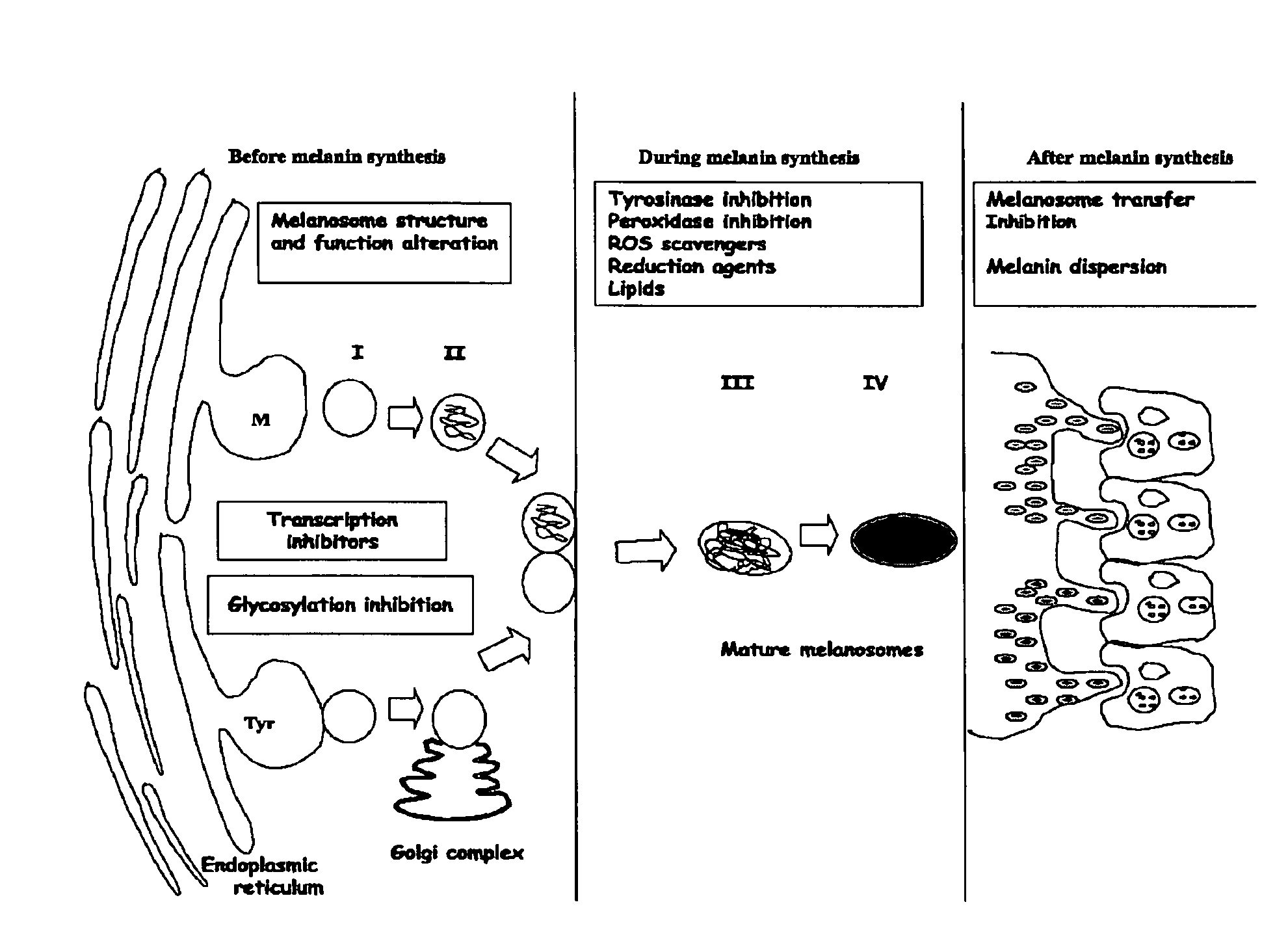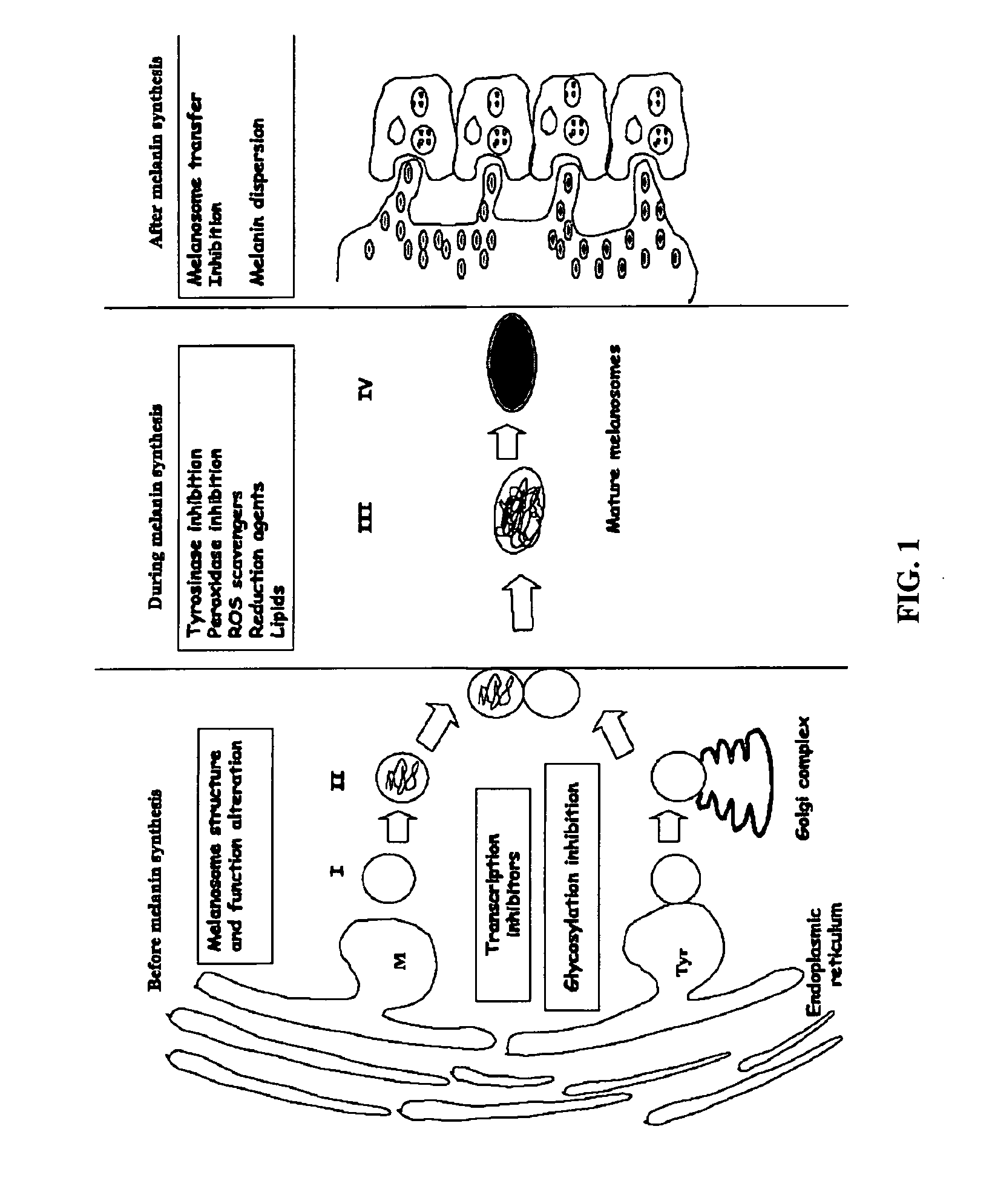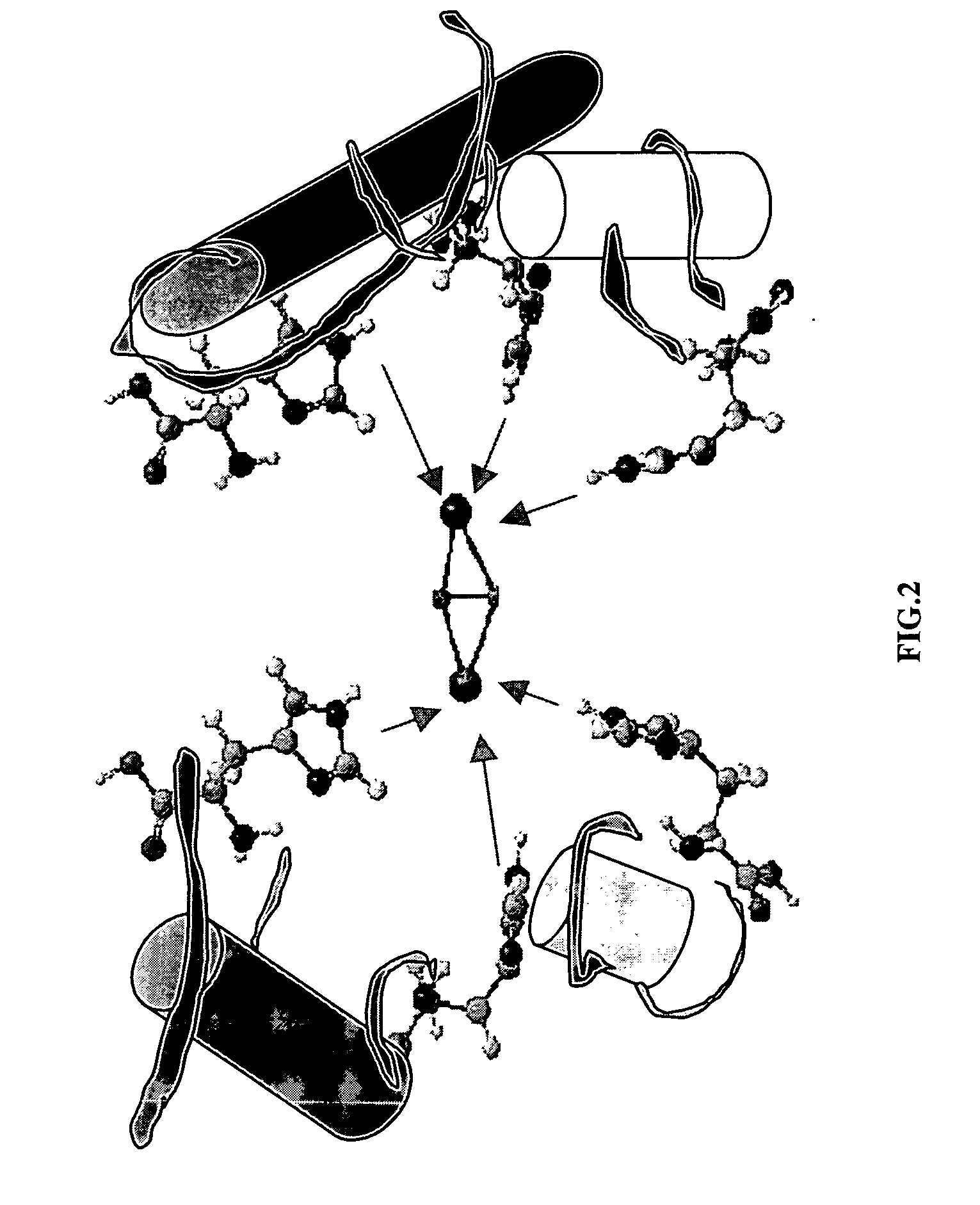Diarylalkanes as potent inhibitors of binuclear enzymes
a technology of binuclear enzymes and diarylalkanes, which is applied in the direction of antimycotics, ether preparation by isomerisation, chemical treatment enzyme inactivation, etc., can solve the problems of hydroquinones having serious side effects, less protection against radiation effects, and reducing the production of melanin and lighter skin color
- Summary
- Abstract
- Description
- Claims
- Application Information
AI Technical Summary
Benefits of technology
Problems solved by technology
Method used
Image
Examples
example 1
Preparation of Organic Extracts from Dry Plants
[0116]Dried plant material was ground to a particle size of no larger than 2 mm and a portion (60 g) was transferred to an Erlenmeyer flask and extracted with 600 ml of methanol:dichloromethane (1:1). The mixture was shaken for one hour, filtered and the biomass was extracted again with methanol:dichloromethane (1:1) (600 ml). The organic extracts were combined and evaporated under vacuum to provide an organic extract from each plant material. Each extract (approximately 75 mg) was then dissolved in 1.5 ml DMSO to a concentration of 50 mg / ml, which was then stored in a −70° C. freezer. An aliquot of the extract solution was used for tyrosinase assay as described in Example 2.
example 2
Tyrosinase Inhibition Assay
[0117]A tyrosinase inhibition assay was carried out using the method reported by Jones et al. (2002) Pigment. Cell Res. 15:335. Using this method, the conversion of L-Dopa, a substrate of tyrosinase, into dopachrome is followed by monitoring absorption at 450 nm. Tyrosinase was prepared in 50 mM potassium phosphate buffer, pH 6.8 (assay buffer) at 2000 U / ml and stored at −20° C. in 1 ml aliquots prior to use. For use in assays, stock enzyme solutions were thawed and diluted to 200 U / ml with assay buffer. A 2 mM working solution of substrate, L-DOPA, was prepared in assay buffer for each assay. Samples were dissolved in 10% DMSO (0.5 ml) and diluted to 5 ml with assay buffer. The reaction mixture consisted of 0.050 ml 2 mM L-DOPA, 0.050 ml 200 U / ml mushroom tyrosinase and 0.050 ml inhibitor. Reaction volume was adjusted to 200 μl with assay buffer. Assays were performed in 96 well Falcon 3097 flat-bottom microtiter plates (Beckton Dickinson, N.J.). Appearan...
example 3
HTP Fractionation of Active Plant Extracts
[0118]Active organic extract (400 mg) was loaded onto a prepacked, normal phase, flash column. (2 cm ID×8.2 cm, 10 g silica gel). The column was eluted using a Hitachi high throughput purification (HTP) system with a gradient mobile phase of (A) 50:50 EtOAc:hexane and (B) methanol from 100% A to 100% B in 30 minutes at a flow rate of 5 mL / min. The separation was monitored using a broadband wavelength UV detector and the fractions were collected in a 96-deep-well plate at 1.9 mL / well using a Gilson fraction collector. The sample plate was dried under low vacuum and centrifugation. DMSO (1.5 mL) was used to dissolve the samples in each cell and a portion (100 μL) was taken for the tyrosinase inhibition assay in duplicate.
PUM
| Property | Measurement | Unit |
|---|---|---|
| temperature | aaaaa | aaaaa |
| particle size | aaaaa | aaaaa |
| concentration | aaaaa | aaaaa |
Abstract
Description
Claims
Application Information
 Login to View More
Login to View More - R&D
- Intellectual Property
- Life Sciences
- Materials
- Tech Scout
- Unparalleled Data Quality
- Higher Quality Content
- 60% Fewer Hallucinations
Browse by: Latest US Patents, China's latest patents, Technical Efficacy Thesaurus, Application Domain, Technology Topic, Popular Technical Reports.
© 2025 PatSnap. All rights reserved.Legal|Privacy policy|Modern Slavery Act Transparency Statement|Sitemap|About US| Contact US: help@patsnap.com



